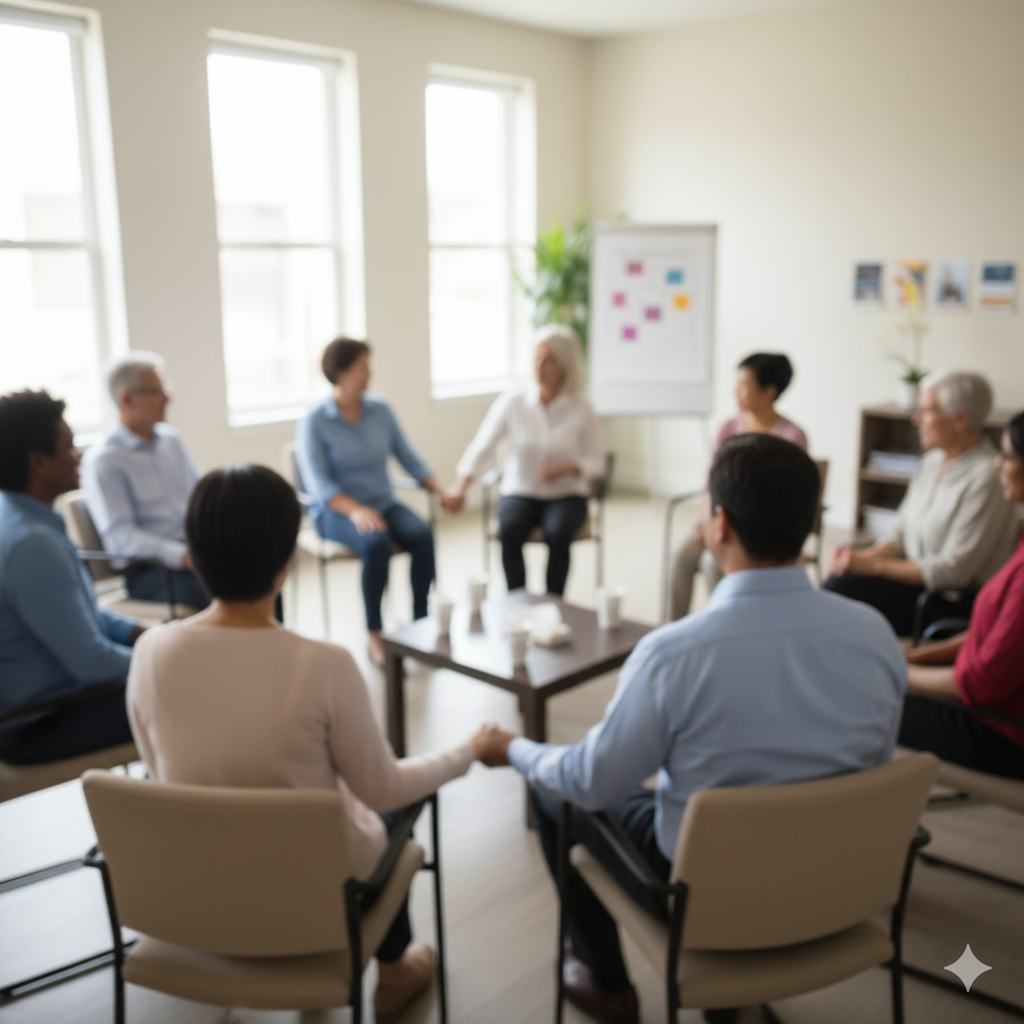

Living with Parkinson’s disease can feel isolating, especially in the early stages of diagnosis. While medical treatments and therapy are important, there is another kind of support that can be just as life-changing: connection with others who understand.
A Parkinson’s support group offers more than just discussion. It provides a space to share struggles, discover resources, and feel seen. Whether you are newly diagnosed or years into your journey, the right group can offer insight, community, and peace of mind.
At The Center for Movement Challenges, we believe connection is part of care. Let’s explore how to find a Parkinson’s support group near you that fits your needs and personality.
A Parkinson’s support group is a regular gathering of people who are living with Parkinson’s or supporting someone who is. These groups may meet in person, online, or over the phone, and they are often led by a trained facilitator or volunteer.
In most support groups, you can expect:
Some groups are patient-focused. Others include care partners, adult children, and even friends.
While no two people with Parkinson’s are alike, the emotional and practical challenges are often similar. Hearing how others navigate life with Parkinson’s can provide perspective, reduce stress, and improve quality of life.
Benefits include:
Whether you speak up or just listen, being part of a group offers valuable support.
Finding a group doesn’t have to be complicated. Here are five simple ways to start:
Neurologists, physical therapists, and Parkinson’s specialists often know of reputable support groups in your area. They may be able to recommend a group that fits your stage or situation.
Trusted foundations provide lists of local and online support groups. Start with:
Each site offers resources for both patients and caregivers.
Many hospitals, senior centers, and community health programs host regular Parkinson’s support groups. Look for postings on their websites, social media pages, or community calendars.
Online groups offer flexibility for those who prefer to meet from home. These include:
You can stay connected even if travel is difficult.
If you already attend therapy, classes, or workshops, ask fellow participants where they find support. Personal recommendations can help you skip the trial-and-error process.
Not every group will feel like the right fit, and that is completely normal. You may need to visit a few before finding one that feels comfortable and helpful.
Consider:
You should feel safe, respected, and welcome. A good group listens, shares, and grows together.
If this is your first support group experience, you might feel unsure. That is completely okay. Most people feel more at ease after just one meeting.
You can expect:
Some people attend just to listen. That is still participation, and it still provides value.
Support groups address emotional health, but movement supports physical well-being. Parkinson’s-specific exercise is one of the most effective ways to manage symptoms, maintain independence, and improve confidence.
At The Center for Movement Challenges, we offer online Parkinson’s exercise classes that help you stay active, engaged, and connected to a positive community. These classes pair well with support group participation, giving you both emotional and physical reinforcement.
Learn more at www.centerformovementchallenges.org.
Living with Parkinson’s takes courage. Doing it without support is unnecessarily hard. Whether you find community through a local group, an online circle, or a mix of both, connection will help you feel stronger and more supported.
Keep trying until you find the group that feels right. It could become one of the most helpful parts of your journey.
The right group is out there, and so is the right movement routine. Visit www.centerformovementchallenges.org to explore our Parkinson’s-specific online classes.
These programs can help you feel more capable and connected, no matter where you are in your journey. You are not in this alone, and you never have to be.

